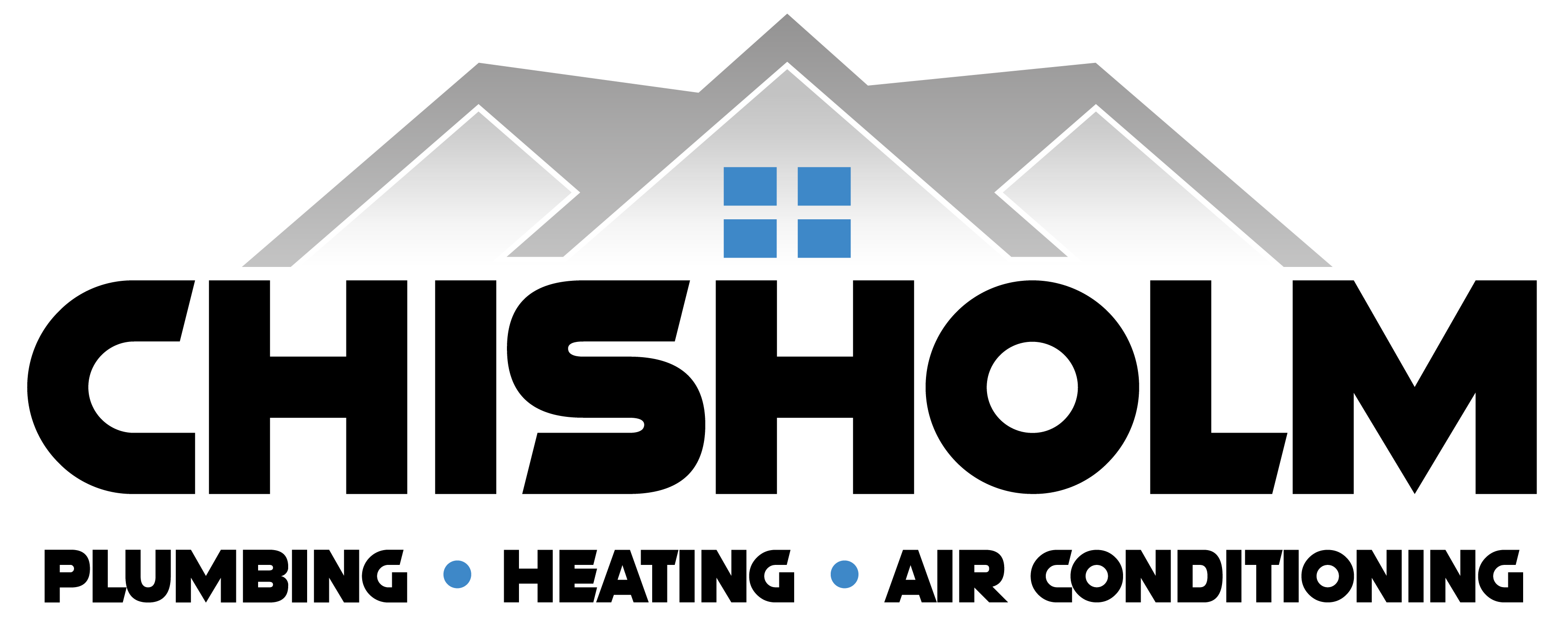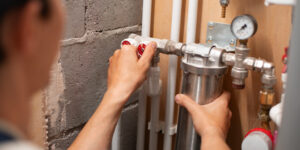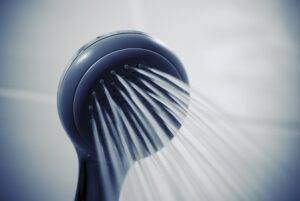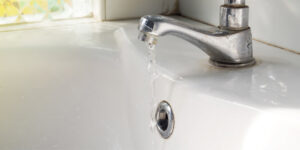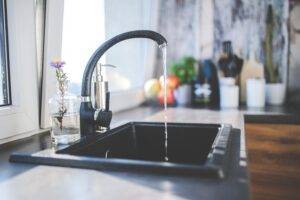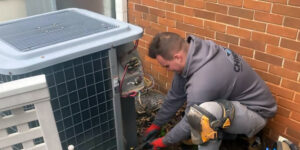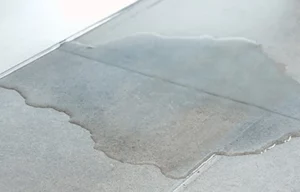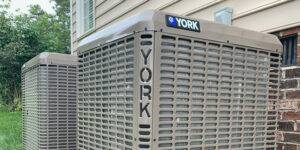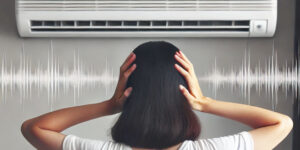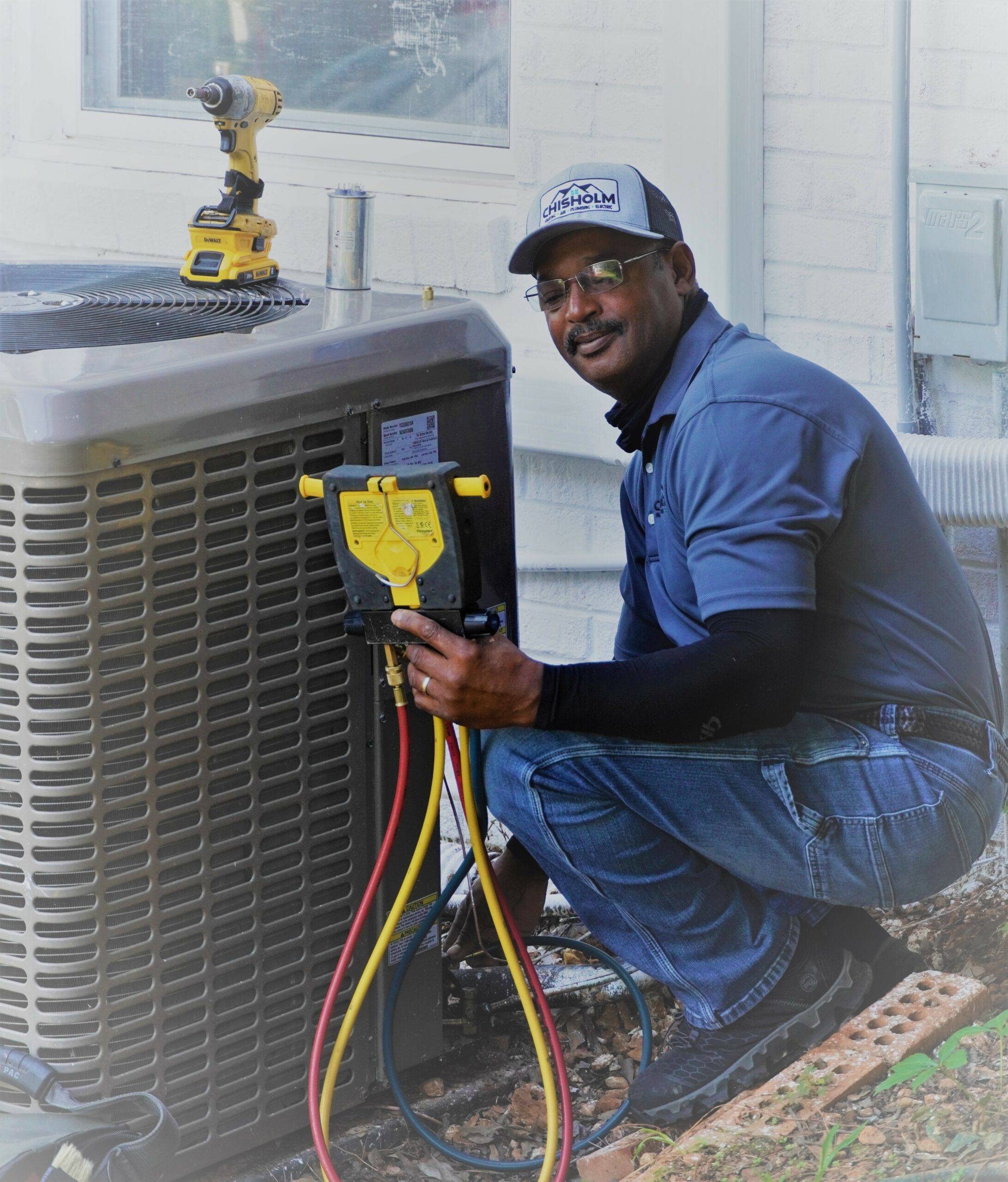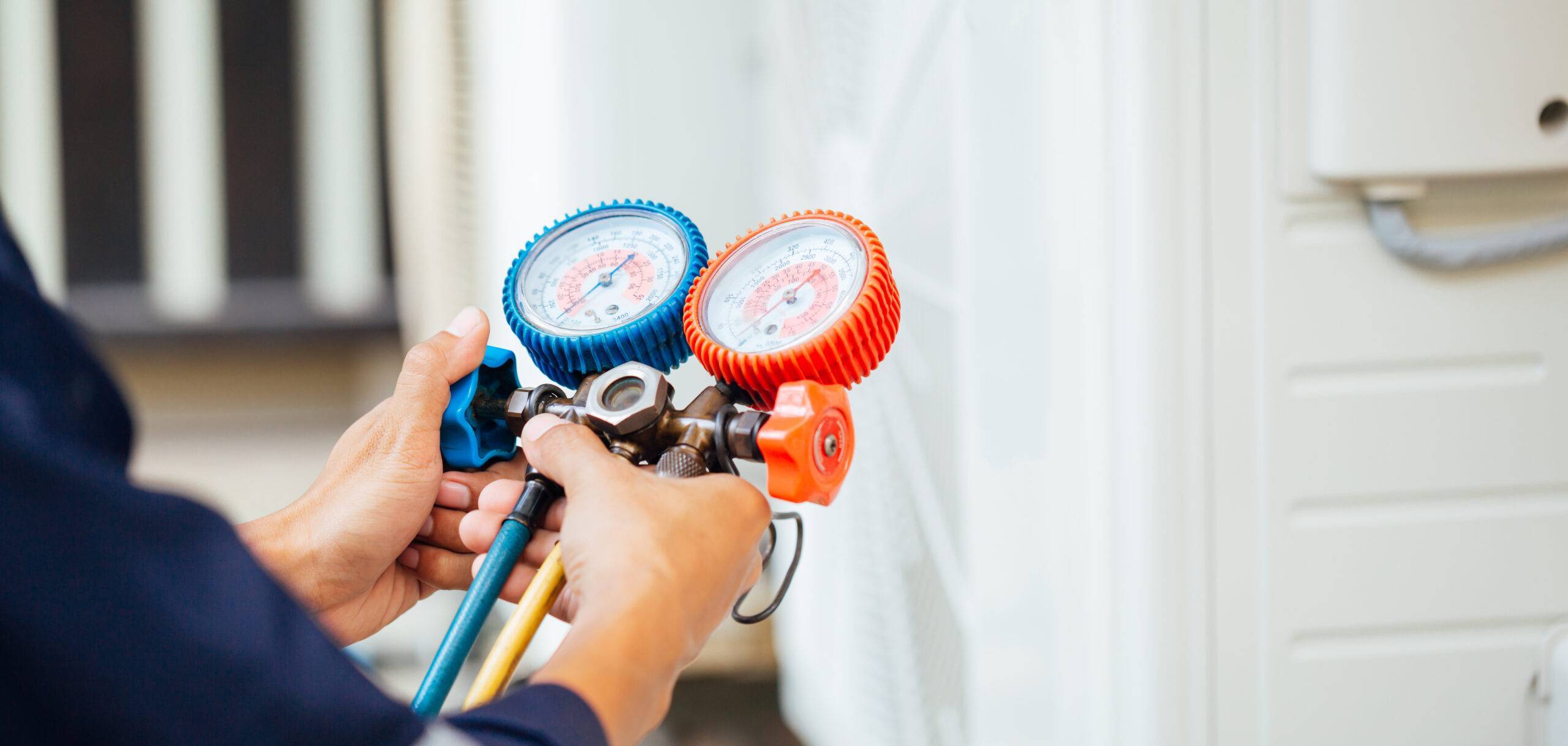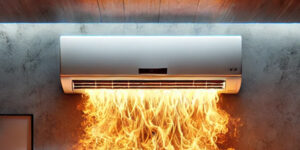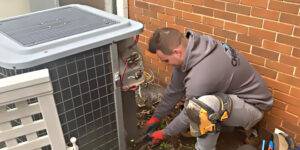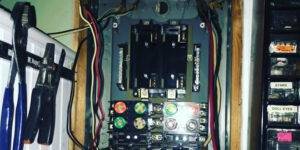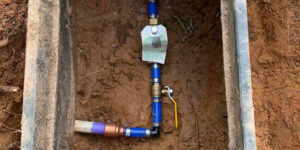
A burst pipe can quickly escalate from a minor inconvenience to a major emergency, causing extensive damage to your home and belongings. Acting swiftly during such emergencies is crucial to minimizing damage and preventing costly repairs. In this blog post, we will guide you through the immediate steps to take when a pipe bursts, explore the common causes of burst pipes, and share preventive measures to avoid future disasters. With Chisholm Plumbing, Heating & Air Conditioning by your side, you can ensure your plumbing system remains in top condition, safeguarding your home from unexpected emergencies.
Immediate Steps to Take When a Pipe Bursts
Dealing with a burst pipe can be overwhelming, but taking swift action can help minimize damage and restore order. Here are the immediate steps to follow when you discover a burst pipe in your home:
- Turn Off the Main Water Supply
Locate and shut off the main water valve to prevent more water from flowing into the damaged pipe. This step is crucial to stopping the spread of water and reducing further damage. If you’re unsure where your main water valve is located, familiarize yourself with it in advance to be prepared for emergencies. - Drain the Remaining Water from Pipes
After shutting off the main water supply, open all faucets and flush toilets to drain the remaining water in the pipes. This step helps reduce the pressure on the pipes and minimizes water leakage. - Identify the Source of the Burst
Carefully inspect the area to identify the location of the burst pipe. If the damage is visible and accessible, it may help you explain the situation to a professional plumber when seeking assistance. - Contact a Professional Plumber for Emergency Repairs
Once you’ve taken initial measures, it’s crucial to contact a professional plumber for emergency repairs. At Chisholm Plumbing, Heating & Air Conditioning, our experienced team is available to provide prompt assistance and effective solutions to address pipe bursts and prevent further damage. - Move Valuables Away from the Affected Area
If possible, move furniture, electronics, and other valuable items away from the affected area to prevent water damage. Use towels and buckets to manage any remaining water flow until help arrives.
By taking these immediate steps, you can effectively manage a pipe burst situation and protect your home from extensive damage. In the next section, we’ll explore how to minimize damage and ensure safety during a pipe burst emergency.
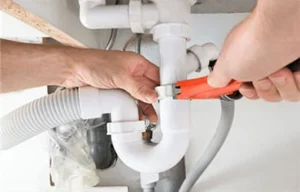
How to Minimize Damage and Ensure Safety
Once you’ve taken the initial steps to control the situation, it’s important to focus on minimizing damage and ensuring the safety of everyone in your home. Here are some practical steps you can take:
- Move Furniture and Valuables Away from the Affected Area
If water is pooling near furniture or valuable items, move them to a dry location. This can help prevent water damage and protect your belongings. Use plastic sheets or waterproof containers to shield items that can’t be moved easily. - Use Towels and Buckets to Manage Water Flow
Place towels and buckets around the affected area to absorb water and prevent it from spreading further. This can help contain the situation until professional help arrives. - Turn Off Electricity if Water is Near Electrical Outlets
If water is near electrical outlets, switches, or appliances, it’s essential to turn off the electricity in that area to prevent electrical hazards. Locate your electrical panel and switch off the circuit breakers for the affected areas. If you’re unsure about handling electrical issues, it’s best to consult a professional. - Ensure Everyone’s Safety
Ensure that everyone in your home is safe and away from the affected area, especially if there is a risk of electrical hazards. Keep children and pets away from the water until the situation is under control. - Ventilate the Area
Open windows and doors to allow fresh air to circulate and help dry out the area. This can also reduce humidity and prevent the growth of mold and mildew, which can thrive in damp environments.
By taking these measures, you can effectively manage the situation, reduce damage, and prioritize safety. If you need professional assistance, don’t hesitate to contact Chisholm Plumbing, Heating & Air Conditioning for prompt and reliable service.
Common Causes of Burst Pipes
Understanding the common causes of burst pipes can help you take preventive measures to protect your home. Here are some of the most frequent reasons pipes burst:
- Freezing Temperatures
During the winter months, water inside pipes can freeze and expand, leading to increased pressure and eventually causing pipes to burst. This is especially common in areas with extreme cold and poorly insulated pipes. - Corrosion and Age
Over time, pipes can corrode due to chemical reactions between water and metal pipes. This corrosion weakens the pipes, making them more susceptible to cracks and breaks. Older homes are particularly at risk, as the pipes may be past their prime. - High Water Pressure
Excessive water pressure can strain pipes and cause them to rupture. Ensuring that your water pressure is within the recommended range can help prevent pipe bursts. If you’re unsure about your water pressure, consider having it checked by a professional. - Clogs and Blockages
Accumulated debris, grease, and foreign objects can cause clogs in pipes, leading to increased pressure and eventually a burst. Regular maintenance and drain cleaning can help prevent clogs from becoming a serious issue. For more on how to maintain clean drains, check out our drain cleaning services. - Tree Root Infiltration
Tree roots can grow into underground pipes, causing blockages and cracks. This is more common in older homes with clay or cast iron pipes. Regular inspections can help identify potential issues before they become serious problems. Learn more about our sewer line services to address such issues.
Understanding these common causes can help you take proactive steps to prevent burst pipes and protect your home. In the next section, we’ll discuss preventive measures to keep your pipes in excellent condition.
Preventive Measures to Avoid Future Pipe Bursts
Taking proactive steps to protect your plumbing system can help prevent pipe bursts and save you from costly repairs. Here are some effective preventive measures:
- Insulate Your Pipes
Proper insulation is crucial, especially for pipes in unheated areas such as basements, attics, and garages. Insulating pipes can help protect them from freezing temperatures during winter, reducing the risk of bursts. Pipe insulation materials are widely available and can be easily installed or you can seek professional assistance. - Schedule Regular Maintenance and Inspections
Regular maintenance and inspections by a professional plumber can help identify potential issues before they become serious problems. This includes checking for signs of corrosion, leaks, and weak spots in your plumbing system. Our team at Chisholm Plumbing, Heating & Air Conditioning offers comprehensive plumbing maintenance services to keep your pipes in top condition. - Monitor Your Water Pressure
Ensure your home’s water pressure is within the recommended range (typically between 40-60 psi). High water pressure can stress pipes, increasing the risk of bursts. A water pressure gauge can help you monitor pressure levels, or you can have a professional assess it for you. - Clear Drains and Prevent Clogs
Regularly clear your drains of debris and avoid flushing items that can cause blockages. This practice can help maintain optimal water flow and reduce the risk of pressure buildup. For thorough cleaning and maintenance, consider our professional drain cleaning services. - Prepare Your Plumbing for Seasonal Changes
Before the onset of winter, ensure all outdoor hoses are disconnected and drained. Shut off water to outdoor faucets if possible, and cover them with insulated covers. This can help prevent frozen pipes and minimize the risk of bursts during cold weather.
By implementing these preventive measures, you can significantly reduce the likelihood of experiencing a pipe burst and ensure your plumbing system remains efficient and reliable. For more information on maintaining your plumbing system, explore our range of services at Chisholm Plumbing, Heating & Air Conditioning.

The Importance of Professional Help
When dealing with a pipe burst or any plumbing issue, relying on professional help is crucial to ensure a thorough and lasting solution. Here’s why professional assistance is invaluable:
- Expert Assessment and Repair
Professionals have the expertise to accurately assess the extent of the damage and identify the root cause of the pipe burst. They use specialized tools and techniques to repair the damage effectively, ensuring your plumbing system is restored to optimal condition. Our team at Chisholm Plumbing, Heating & Air Conditioning is trained to handle all types of plumbing emergencies with precision and care. - Preventive Solutions
In addition to addressing immediate issues, professional plumbers provide advice and solutions to prevent future problems. They can recommend improvements to your plumbing system, such as upgrading materials or installing pressure regulators, to enhance durability and performance. - Time and Cost Efficiency
Attempting to fix a pipe burst on your own can be time-consuming and may lead to further complications if not done correctly. Professional plumbers can quickly diagnose and fix issues, saving you time and potential additional costs from DIY mistakes. - Peace of Mind
Hiring professionals gives you peace of mind knowing that your plumbing issues are being handled by experienced experts. This allows you to focus on other important aspects of your life without worrying about the integrity of your home’s plumbing system. - Comprehensive Services
At Chisholm Plumbing, Heating & Air Conditioning, we offer a range of services to meet all your plumbing needs, including water heater maintenance, sump pump installation, and water and gas line services. Our comprehensive approach ensures your entire plumbing system is well-maintained and efficient.
By choosing professional help, you can ensure that your plumbing system is in capable hands, reducing the risk of future emergencies and extending the lifespan of your plumbing infrastructure.
For prompt and reliable service, contact Chisholm Plumbing, Heating & Air Conditioning and let our skilled team handle your plumbing needs with expertise and care.
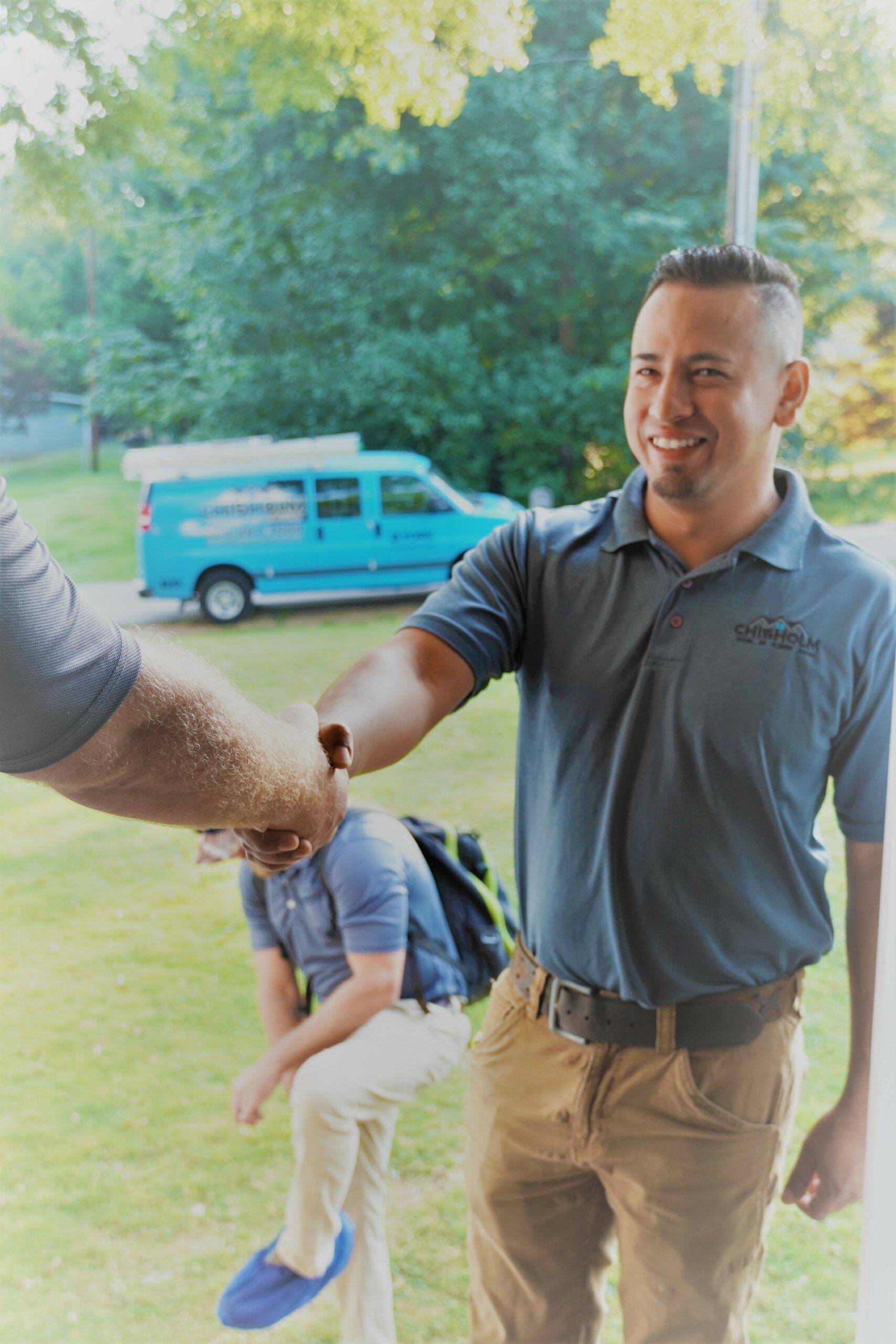
Conclusion
Dealing with a pipe burst can be a stressful experience, but knowing the right steps to take can help you manage the situation effectively and minimize damage. By turning off the main water supply, contacting a professional plumber, and taking preventive measures, you can protect your home and prevent future plumbing emergencies.
Understanding the common causes of pipe bursts, such as freezing temperatures, corrosion, and high water pressure, can help you implement preventive strategies to safeguard your plumbing system. Regular maintenance, inspections, and professional assistance are key to ensuring your plumbing remains in optimal condition.
At Chisholm Plumbing, Heating & Air Conditioning, we are committed to providing top-quality plumbing services to keep your home safe and comfortable. Whether you need emergency repairs, routine maintenance, or expert advice, our team is here to help. Explore our service area to see if we serve your location and contact us for all your plumbing needs.
Don’t wait for a plumbing emergency to strike—take proactive steps today to protect your home. Reach out to Chisholm Plumbing, Heating & Air Conditioning for expert service and peace of mind.
